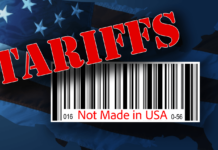The Truth Tracker continues its close look at A Better Financial Plan and its CEO, Dean Vagnozzi who proclaims he has a greater financial plan, “better than anything out there.” The firm’s advertisements vaguely describe multiple alternative investments that guarantee double-digit returns for their investors, with interest paid monthly or quarterly and the return of your principal investment after two years. In a number of promotional videos, Vagnozzi can be heard proclaiming that he is the most ethical investor in the business, despite his history of financial negligence. Part one of the Truth Tracker investigation highlighted issues that arose with the Pennsylvania Department of Banking and Securities and Par Funding, a predatory alternative lending company involved in the sale of non-negotiable high-risk promissory notes for the purpose of Merchant Cash Advances. According to Vagnozzi, breaking securities regulations for profit is an ethical decision. To expand on his interactions and business operations, the Truth Tracker sat down with a client of A Better Financial Plan.
John Doe, a resident of Pennsylvania, met with A Better Financial Plan to invest a large sum of money after hearing about the guaranteed double-digit returns on the radio. As a retired individual, Doe was seeking high-growth investments and decided to put A Better Financial Plan’s method to the test. After discussing the details of his contract with an advisor at A Better Financial Plan, Doe was guaranteed a 10% annual return and full repayment of his principal when the contract matured, one year later. As reported in part one of the Truth Tracker investigation, the returns are dependent on how much money was invested. According to a website advertising the Merchant Cash Advance investments, an investment of $100,000 – $250,000 will guarantee a return of 10%. $251,000 – $500,000 guarantees a return of 12%, and an investment of $501,000 or more guarantees a return of 14%.
It was explained to Doe, by A Better Financial Plan, that the monthly payments on his unregistered high-risk promissory note contract were derived from the interest paid on the Merchant Cash Advances. As discussed in part one of the Truth Tracker, Merchant Cash Advances or MCAs are given to small businesses attached with high-interest payments that can exceed 35% or more. Doe went on to explain how his investment plays a role in his guaranteed return. After making his investment and signing his unregistered high-risk promissory note contract, A Better Financial Plan lends the funds to an alternative lender, Par Funding, who then issues the MCAs. After the small business receives the advance, the payments made by the small business then get funneled back through Par Funding to A Better Financial Plan and that money is paid out to investors as their monthly interest payments. Therefore, the 35% interest payments, “legitimize the 10% [annual interest payments] to prospective customers,” said Doe.
Thus, the money travels from the investor to A Better Financial Plan in the form of an unregistered high-risk promissory note – which is considered a security – to Par Funding who contractually hands out Merchant Cash Advances to small businesses. As the money is repaid along with the interest, that money reverses track and finds its way back to A Better Financial Plan’s investors in the form of their monthly payment, which is a fraction of their annual 10%, 12% or 14% return. The money repaid to investors is done so through a direct deposit, according to Doe.
While talking to Doe about the contents of his unregistered high-risk promissory note with A Better Financial Plan, the process of investment that was explained to him by A Better Financial Plan is not outlined in his contract. Furthermore, he was not informed about who manages his money after it gets invested. Instead, the only documentation that the client received about his investment is in his contract, which states that he will receive a 10% annual return along with full repayment of his principal once the contract matures after one year. In their radio and television advertisements, A Better Financial Plan has increased the repayment period to two years, likely because of the economic downturn caused by COVID-19. Doe is not aware if Par Funding is partnered with A Better Financial Plan to engage in this investment, but said that the company name sounded familiar after reading the 2019 enforcement order which listed both A Better Financial Plan and Par Funding. With any investment, the investor should have a comprehensive knowledge and understanding of what they’re putting their money into and how the investment works, and based on Doe’s recollection of the meeting, this was not the case.
During Doe’s meeting with A Better Financial Plan, Doe stated that Merchant Cash Advances were the only investment opportunity being promoted and encouraged. Aside from leaflets left around the office of A Better Financial Plan, there wasn’t much information available for Doe to educate himself about MCAs. While sitting with one of A Better Financial Plan’s advisors, Doe recalled a PowerPoint presentation being used to swiftly explain the details of the investment, while adding, “[I received] no physical paperwork other than my contract.” Although Doe claims the encounter was professional, he stopped short of calling it informative. Following the meeting, Doe was informed that his contract was backed by a popular international insurance agency, wherein the event of a default on the unregistered high-risk promissory note, the insurance company would ensure that the investor accrued no losses. Doe requested a copy of the policy to review and keep in his records, however, his requests were denied. Instead, he was told to come into A Better Financial Plan’s office and read the policy in person with one of the advisors.
As mentioned in part one of the Truth Tracker, A Better Financial Plan has multiple investment funds for the several investment opportunities that are available through their firm. Doe’s contract and check were written out to one of the six known income funds that deal with MCAs. He described that even though he wrote a check to one of the funds, he did not know its purpose, nor was it explained to him. “At worst, the contract is potentially misleading,” Doe said, although remaining confident in his investment.
The unregistered high-risk promissory note contract issued by A Better Financial Plan for MCAs to Doe is not registered with the State of Pennsylvania, nor the Securities and Exchange Commission. The Pennsylvania Department of Banking and Securities states that “[S]mall businesses that want to issue stock or debt and do not qualify for an exemption must register the security with the Department.” They go on to say, “The business may not make offers or sales of securities in Pennsylvania until the offering has been cleared by the Department.” Since A Better Financial Plan files for the exemption mentioned in part one of the Truth Tracker – Rule 506 of Regulation D – A Better Financial Plan and it’s CEO, Dean Vagnozzi, are not required to register their security or to register as a broker or issuer.
There were several instances where Doe’s recollection of his experience with A Better Financial Plan would raise issues of transparency. The first being the lack of information presented to the client during the meeting and the unavailability of physical paperwork other than the promissory note contract. When Doe requested more information about the protections in his contract, he was denied and told that he would have to physically come into the office as if the policy was a secret. Furthermore, Doe was not told who manages the investment fund, where the money goes after he invested the money, and there is no outline of how the investment works – that is troublesome, to say the least.
If what Doe described is true, about how his investment manufactures a return, then A Better Financial Plan and Par Funding have not moved on from their financially negligent past. Rather than fix and address the issues raised by the Department of Banking and Securities in 2019, the two companies decided to change the investment pattern to skirt around the regulations and simply file an exemption. Doe was alarmed, but not dismayed when he learned about the 2019 enforcement order, and A Better Financial Plan even sent Doe a letter explaining their side of the story and claimed that the enforcement was a result of a large “gray area” in the regulation of securities. Regardless of A Better Financial Plan’s retort to the enforcement order, Vagnozzi and A Better Financial Plan maintain serious transparency issues with the State and with their clients. Despite correcting past wrongdoing by changing the investment pattern, A Better Financial Plan’s behind-closed-door tactics and unnecessary protection of information from clients certainly refutes their claim of being the most ethical in the business.












